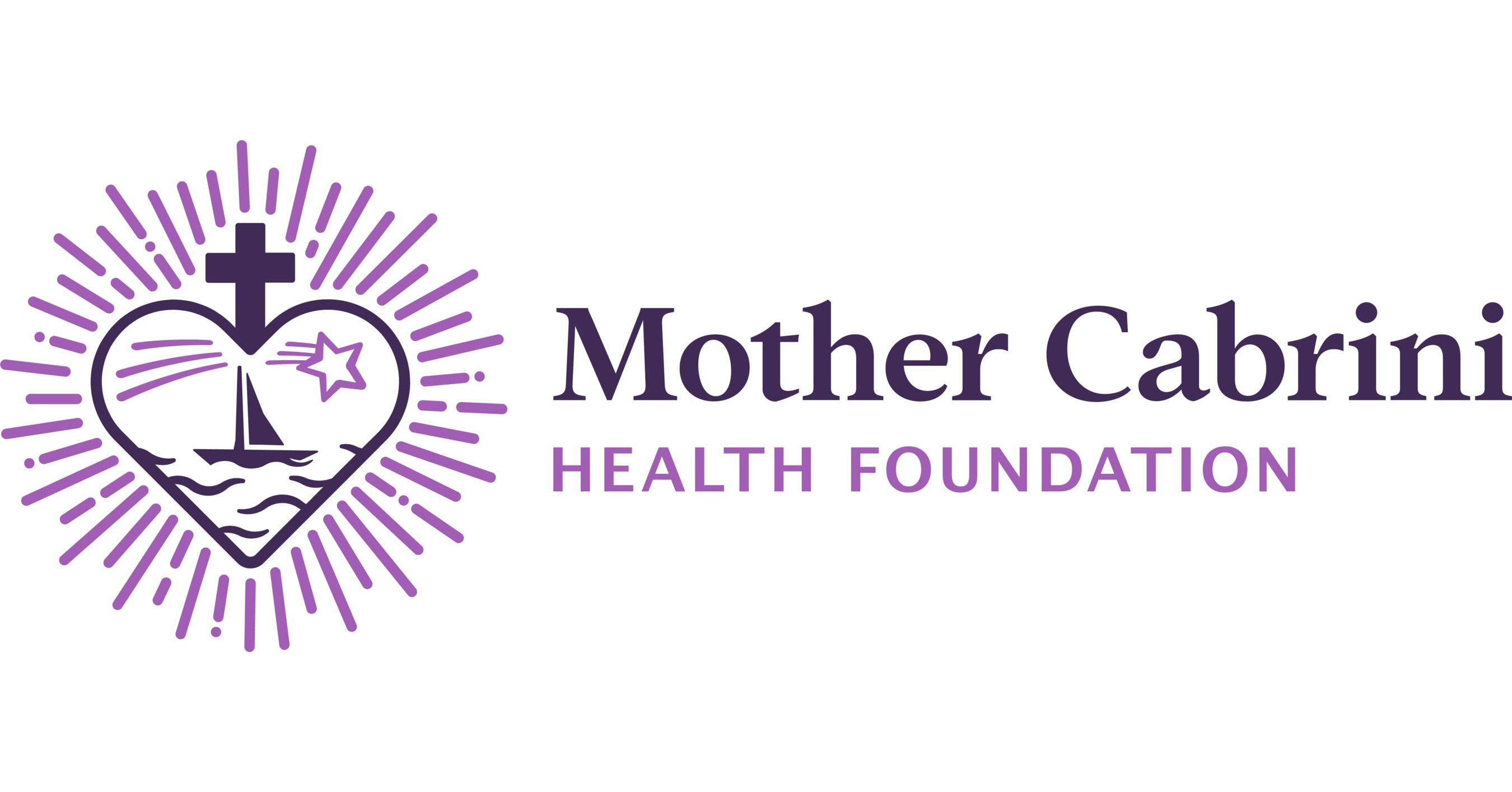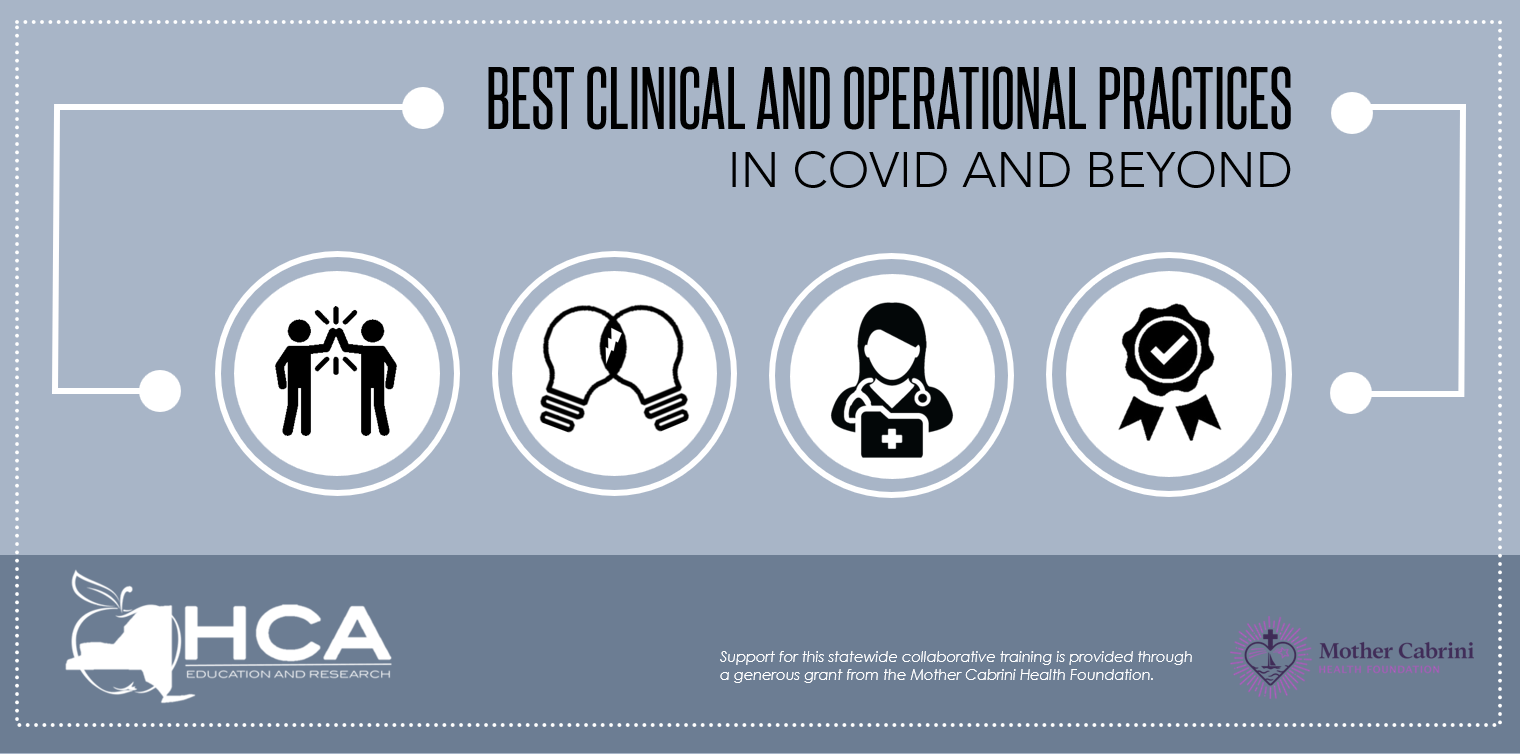
About
The Home Care Association of New York State (HCANYS) is a committed partner with state and national advocacy organizations, Sepsis Alliance and End Sepsis, who are leading the way to combat sepsis — a national public health crisis that is the number one cause of death in hospitals and number one cause of readmissions. HCANYS equips home care providers and clinicians to do their part to Stop Sepsis at Home.
Support for this statewide initiative is provided through a generous grant from the Mother Cabrini Health Foundation
Sepsis Tool 101
HCA Sepsis Screening & Intervention Tool 101: Everything You Need to Know
The HCA Sepsis Tool is an assessment instrument created by an HCA clinical workgroup over a period of several years through research and medical guidance from top sepsis clinicians in NY and nationally. The Tool is created for use specifically by home care clinicians, but may also be used in other ambulatory and long term care settings. It is comprised of a screening tool instrument, an algorithm, standard protocol, and patient education zone tool.
Who Is Eligible
- Any organization utilizing nurses or other qualified clinicians to perform the sepsis assessment using the HCA sepsis tool, and that provides services in home and community, or in an ambulatory or certain other residential/facility settings, may seek to incorporate the sepsis tool in its clinical practice. State associations and other multi-level organizations are also eligible to work with HCA to make the tool available to their affiliates.
What You Need to Do
To use the sepsis tool, organizations must complete HCA-approved training and a sepsis tool user agreement (available upon request) attesting to the following requirements:
- Complete the training.
- Use the tool, algorithm, zone tool and protocol (a/k/a “related instruments) in the form and following the criteria provided.
- If the tool is being incorporated into the agency’s EHR, assure that the EHR company attests that its incorporation or any other use of the tool is solely for your agency.
- The tool and related instruments (except the zone tool) will not be shared with an entity that is does not have a user agreement with HCA).
- The agency is willing to share its experience with HCA and other users.
What We Do For You
HCA can assist you with the initial training. Training resources are available upon arrangement with HCA.
What Happens At Launch
- Providers should adopt the tool and related instruments as part of its clinical policies and protocols.
- Consider holding initial periodic “office hours” or other sessions for Q&A, and information sharing. Notify partners (hospitals, MDs, EMS, health plans, area agencies on aging, mental health, etc.,) that you are using this the HCA sepsis tool. Consider media education and outreach.
- Please share your data through the portal hosted by IPRO that has been specifically created for this HCA Sepsis Tool initiative. It helps support our mutual work in combatting sepsis.
How to Get Started
- Contact HCA at This email address is being protected from spambots. You need JavaScript enabled to view it. to indicate interest and schedule a background discussion.
Resources
HCA strongly encourages the viewing of the following educational videos as part of the foundational training:
Foundational information on sepsis from:
Additional Valuable Background:
Recent Studies
Sepsis Awareness Month
In 2011, Sepsis Alliance designated September as Sepsis Awareness Month. Every September, the home and health care community comes together to raise awareness of the leading cause of death in U.S. hospitals – sepsis. It is the body’s life-threatening response to infection that affects 1.7 million people and takes 350,000 adult lives in the U.S. every year.
September is Sepsis Awareness Month
Awareness of sepsis is imperative for prevention, early detection, treatment, and avoiding unnecessary deaths.
Sepsis Awareness Month Proclamation
Governor Hochul proclaimed September 2024 as Sepsis Awareness Month on September 1, 2024.
Legislative Resolution
The New York state Senate, at the request of HCA, has passed a legislative resolution memorializing Governor Kathy Hochul to proclaim September 2024 as Sepsis Awareness Month in New York State.
Watch HCANYS President Cardillo speak about sepsis on this New York State Office for the Aging webinar here.
Maternal Sepsis
END SEPSIS partnered with HCANYS to implement a maternal sepsis education, prevention, and intervention initiative under a grant provided by the Mother Cabrini Health Foundation (MCHF) to END SEPSIS. HCANYS has worked with END SEPSIS and Rory’s parents, Ciaran and Orlaith Staunton, and with Sepsis Alliance, for the past decade to support sepsis prevention and intervention through home health and across the continuum.
Sepsis is currently the SECOND leading cause of maternal mortality, and likewise impacts infants and children, with threatening yet preventable results. 87% of sepsis cases originate in home and community settings.
Home care clinicians are expert educators, screeners, evaluators, interveners, and system navigators—critical in sepsis effectiveness. All provider types, health plans, nurse family partnership providers, and community partners can access these educational materials.
Sign up to view the training and accompanying maternal sepsis resource materials for patients and providers, mutually provided to you by HCANYS and End Sepsis through Mother Cabrini Health Foundation grants, here. View the educational training here.
Check out End Sepsis’ list of resources here.
Sepsis In-Service Training for Home Health Aides, Personal Care Aides, and Paraprofessionals In Other Health Settings
Improving Sepsis Prevention, Screening and Intervention in Community and Across the Continuum, HCA is pleased to make available this NEW video module for in-service education and training in early sepsis recognition and response for home health aides, personal care aides and similar personal care and health related assistants. This education and training is available without charge, and is supported by a special grant to HCA Education and Research, by the Mother Cabrini Health Foundation. Note this training complements HCA’s clinical level training for nurses, physical therapists, and other qualified clinicians that is separate, distinct and required for the use of the HCA Sepsis Screening and Intervention Tool. Background on HCA’s national and industry-pacing home health clinical training and screening and intervention tool for sepsis is available here.
Who is this New Aide-Level Training Module for?
The model is accessible online, 24-7, and on-demand by aides providing services in:
- home health agencies
- home care services agencies
- hospices
- managed long term care plans
- consumer directed personal assistance programs
- adult care and assisted living facilities
- community mental and behavioral health care settings
- nursing homes






